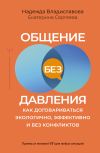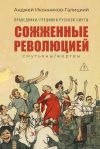Читать книгу "Untrodden paths"

Автор книги: Andrei Shkarubo
Жанр: Современная русская литература, Современная проза
Возрастные ограничения: 16+
сообщить о неприемлемом содержимом
Untrodden paths
or philosophy of Russian political system
Andrei Shkarubo
© Andrei Shkarubo, 2016
Created with intellectual publishing system Ridero
Untrodden paths
By Andrei Shkarubo
Dedicated to those who, in their quest for Truth, pass through Death
From the author: The author is in no way responsible for the politically incorrect actions and words of the characters in his play: it takes place in a psychiatric hospital 50 km. east of Moscow in the summer of 1985, at the start of Gorbachev’s perestroika.
To those who might view the plot as contrived and unrealistic, saying that people, finding themselves in a psychiatric hospital, are unlikely to spend their time debating at length the complex issues of philosophy, our being, and politics; thinking that in a psychiatric hospital these people are likely to be preoccupied with their own problems and sorrows, rather than the problems of the whole mankind – the author would like to remind those that the characters of his play are not normal healthy members of society, but personalities whose minds are thought to be seriously affected – which is evident from their painful, obsessive, pathological drive toward some alleged Truth; indifference toward their own fate and wellbeing; and finally total disregard for authority and state.
Gentlemen, and former comrades, too, please, be patient with my characters – they are sick people, besides, they are living in Russia – the country where the questions «who’s to blame?» and «what to do?» are inherent.
Act 1
morning in the ward – «Spy»Bachkov, a tall, athletic, handsome male nurse in his mid-thirties: Wake up, wake up, you loonies! Everybody here, get up, get dressed, make your beds, wash your f-f-f-asses. Voronin, stop jerking off and start the floor scrub!
Voronin, a man in his mid– thirties: I ain’t jerkin’ off, I’m playing morning tattoo.
Imitates the sound of a bugle.
A general laugh, then someone: He won’t get up till his cock gets down!
Bachkov: Grab that broom and play scrubbing tattoo, instead.
Voronin, giving a loud raspberry, causing more laughter: Sorry, Captain, but scrubbing ain’t like jerkin’ off; it has to be done in turns.
Bachkov: Whose turn is it, then?
Voronin: See this new loony, in the corner?
Bachkov: Are you Andrei, the one police brought in yesterday evening?
Andrei, a young man of 27: Yes.
Bachkov, giving an amused whistle: I‘ve just read your case story, is it rue? They say…
Andrei: Never mind what they say, watch what they do…
Bachkov: Really? Well, frankly, it’s none of my business because I’ve seen enough to mind my own. Anyway, Mr. Spy, today seems to be your turn to scrub. Here’s a bucket and a mop for you.
(Sound of scrubbing)
Sasha, a young man of 27 with a guarded look characteristic of an ex-con, watching inexperienced scrubbing movements, asks quietly: First time here?
Andrei: Not exactly, I was in the institution before, four years ago, in fact.
Sasha: What for?
Andrei: American embassy…
Sasha: Wanted to emigrate?
Andrei: Not exactly, it’s a long story….
Victor, a handsome man of 45 with piercing shiny eyes: That’s what our gaga-houses are for: To cut our long stories short. As I understand it, once you’re on the KGB’s black list, your stays here are bound to become regular: a party Congress, Good-Will Games, or a Youth Festival, like now, and they round up all subversive elements which might spoil their fun.
Sasha: Yeah, man, you should have gone to some safe place before this fucking festival began.
Andrei: I didn’t know that. I thought – in fact I was assured – that if I laid low and kept quiet I would be left alone, unnoticed and forgotten.
Victor: Boy, you must be really naïve to trust what they say. It’s not in their interests to forgive and forget. They live by suppression.
Andrei: Why? Is it in their interests to increase the number of their enemies?
Victor: Friends and enemies are the notions which belong to the rosy world of Romance. The shady world of politics knows only «useful and useless». And if you should happen to be of any use to them, they label you as friend or enemy, depending on the way they want to exploit you. It doesn’t matter for them which side you’re on, as long as you play by the rules of the game.
Andrei: How’s that?
Victor: Whatever team you play for there’s only one goal in this ball game.
Tupikov, a portly man in his sixties, grinning: Victor Vasilyevich is a philosopher, got here because of it.
Victor: No, I’m not a philosopher. I used to practice yoga, until my enlightenment, then I wrote a book – and here we are…
Tupikov: Now psychiatrists are busy writing the review. After which, unless the author shuts up, the «publisher» would pay him lavish royalties, which you, Victor Vasilyevich, would be at pains to enjoy, say, in Sychevka, or in Kazan’s life ward.
Victor: Well, Nikolai Ivanovich, I’ve never shied away from the graces of our high and mighty. Besides, one can write in Kazan too.
Andrei and Sasha laugh.
Sasha: Victor, they’ll give you such hell for your ravings you won’t know how to read, much less write.
Victor: If I remember correctly, Porfiriy Ivanov was able to write his things when they locked him in Kazan psychiatric prison.
Sasha: Who’s that?
Victor: A Russian healer, a yogi.
Tupikov: Victor Vasilyevich, Ivanov, being a yogi and a healer, never meddled in politics.
Sasha: A pal of mine returned from Kazan recently. He says the guy who tried to shoot Brezhnev in Red
Square is still in solitary. The guys there have tried repeatedly to pass him cigarettes at least, but the coppers never let them.
Andrei, surprised: Is he still there? It’s been over twenty years since he…
Sasha: What did you expect? It’s a life ward…
The somber mood was broken by Bachkov reappearing in the doorway: Hey, loafers, breakfast time!
With a joyous cry Voronin leaps from his cot. In the doorway he receives from Bachkov a kick in the ass, so hard it might have knocked anyone else down, but Voronin just gave another loud raspberry and raced to the dining hall, reciting on the way children’s verses «I’m a jolly little cloud mistaken for a bear. I’m a jolly little cloud, floating here and there…»
The rest, smiling, leave the ward slowly, leaving behind only Victor Vasilyevich and Andrei, who went on scrubbing.
Andrei: Why don’t you go?
Victor: I take my meals only once a day.
Andrei: Oh, yes, you are a yogi. I myself have been practicing yoga for 15 years already. I’ve read lots of books on it, and on the occult in general.
Victor: Really? In our country one can get these books only by samizdat. You have a chance to get such literature?
Andrei: No, I just happen to know English and spend a lot of time in the library of foreign literature in
Moscow.
Victor: I see: a second language is a second life.
Andrei: Frankly, what I wanted to say is that I don’t know what a person could write about yoga to land him in a psychiatric hospital.
Victor: First of all, there are lots of things about yoga which the authorities would like to keep secret from the public, mostly things which concern mind control. That’s actually why the occult department was formed inside the KGB.
Andrei: Really? Well, on the other hand, why not – bearing in mind that there’s no hole in the country they won’t stick their nose in.
Victor: Of course, they do. How else can you explain the fact that all our underground groups in yoga, martial arts, and esoterica in general are controlled by the KGB, sometimes even guided?
Andrei: You mean they are hiding more from the public than from the authorities?
Victor: Of course!
Andrei: And their goal – control and modification of conduct?
Victor: This too. You seem to know the issue and catch on fast.
Andrei: Yes, I read a few reports on similar CIA programs and occult sects created in the US for those purposes. It’s hard to hide such things in a democratic country with its Freedom of Information Act.
But what did you write about this to cause the KGB to send you here?
Victor: Nothing yet. They sent me here for creating a new dialectics and using it in analyzing the present political situation as well as for giving forecasts for the future that warn about the complete disintegration of our political system – which they, for some reason, call communist – and for warning about the consequences which might take place if the regime, clinging to power, should resort to methods of control and manipulation of the public mind.
Andrei: I see. But how are your dialectics related to yoga? It seems to me that dialectics is part of philosophy.
Victor: It’s directly related.
Andrei: Excuse my pestering you; it takes me a while to understand things; but I still don’t understand what yoga and dialectics have in common, and what forecasts one can give on the basis of dialectics?
It seems to me the best thing it can help us do is to explain processes and phenomena – post factum at that.
Whereas the things we are witnessing here and now, to say nothing of the future, either have no explanation or those explanations are similar to the claptrap of our scientific communism: I mean its theory lacks a scientific approach, while what we have in real life, in practice, can be defined as neither socialism, nor communism.
Victor: Yeah, foolishness in theory is fascism in practice. That’s why I created the new dialectics: the maxims of the old one are no longer adequate to understand the modern picture of the world. So I significantly extended their number, and gave them a deeper contemporary interpretation, assembling them all into a single analytical model, methodology.
Andrei: Where did you get those missing maxims from, and the model itself?
Victor: See, that’s where yoga and dialectics are linked. As you know, yoga studies not just our body, but our mind as well.
Andrei: Sure.
Victor: The whole of our logic, all of our theories, are based on maxims – notions, concepts, judgments – which to our mind seem self-evident and therefore do not require any proof.
Andrei: Yeah; so?
Victor: It’s yoga which showed me in practice that our minds can vary significantly and the picture of our perception is rather conditional and always relative, being the function of speed, or frequency, of our perception.
Andrei: Beg your pardon?
Victor: Let’s say if you want to study the work of the wings of a bumble-bee hanging over a flower, your eyes would be useless there: the speed of the wings’ movements is incomparable faster than the speed of your perception; therefore the perceived picture is appropriately chaotic; the understanding of the perceived is nil.
But as soon as the speed, frequency, of your perception begins to approach the speed, frequency, of the wings’ movement – no matter whether it’s due to yogic training, or you just film it using a high-speed video recorder – then with the growth of the speed of perception, you begin to make out of general chaos, to distinguish certain elements, episodes.
The problem at this stage, though, is that while you’re detecting one thing, you can’t detect any other; there’s simply no time for this.
This, incidentally, is the gnostic cognitive cause of all our conflicts: one catches a glimpse of one thing; another, of something else, its opposite, which provokes a dispute, often aggravating into a conflict, in which, sooner or later, the truth is born: that is, a third party emerges which initially disproves, if not defeats, both, then brings them together by producing a new integrated vision and explaining the faults of the old rivals. It’s possible, though, only if the speed of perception of this third party equals the speed of the process under study. The picture of perception will be static only in this case.
Andrei: Static?
Victor: Sure. It’s as if you were driving a car and caught up with a train going in the same direction. At this moment you’d be static relative to each other, and the picture perceived by you would be static and whole. That is, you’d be able to see all the elements of the picture at once, with all their interrelations; in other words, you’d see and you’d comprehend.
Andrei: Still, I don’t quite follow where these additional maxims would come from.
Victor: As I said, they come from a higher level of consciousness and, appropriately, higher speed of perception. While prior to me the only thing they could detect was, say, that the bumble-bee’s wings move up-and-down, I can make out and take into account such things as frequency of their movements, their amplitude, their angular and linear speed, and lots of other factors which, if considered, could both explain and predict any maneuver – whereas for an ordinary eye such maneuvers would seem just chaotic.
Andrei: The analogy is more or less plain. But the issue itself hasn’t become any clearer. Besides, frequency, amplitude, speed are the notions of physics, not philosophy.
Victor: Quite right! It’s only too natural that our material world obeys the laws of physics. Our social relations, too, can be modeled and calculated the way they model and calculate, say, the trajectory of a spacecraft.
Аndrei, finishing his scrubbing and wringing out mop, remarks with bitter irony: So your work is actually a new edition of a dialectical materialism, isn’t it? Why did they lock you up then, for furthering
Marxism-Leninism?
Bachkov popped in: Finished? Hurry up or you may miss your breakfast.
Andrei: It’s Ok, we haven’t finished our talk yet.
Victor, smiling: You’d better go. A stomach stuffed with oatmeal is better than a head swollen with my ravings.
Andrei: Why so?
Victor: With oatmeal, you only risk spending your time in the toilet, with my ravings – time in a psychiatric hospital.
Andrei: OK, I’m going, just want to remind you that we are already there.
Scene in the mess-hall – amnesiaAn empty mess-hall. Andrei, getting his bowl of porridge and a cup of chocolate, sits close to Sasha, who’s already had his meal and is now waiting impatiently for something.
Andrei: Had your breakfast?
Sasha: Uh-huh.
Andrei: Won’t you go to get your medicine?
Sasha: Later. The boys in the kitchen are making chifir (a strong tea brew used as a mild narcotic).
Andrei: I see.
Nodding at Sasha’s forearm: You’ve got a beautiful rose tattooed on your forearm. So simple and so delicate.
Sasha: Yeah, I had a real artist for a cellmate in Smolensk.
Andrei: You were in Smolensk prison? What for?
Sasha: Burglary.
Andrei: Locked in a psychiatric ward?
Sasha: They did it later. I didn’t quite get along with the administration, you know.
Andrei: Refused to snitch?
Sasha: Yes. So they certified me, and put in a ward, with a gorilla for a male-nurse. He was serving his time there for rape and murder. Honest thieves wouldn’t take this job, you know. So as soon as I got there he tried to use me for his bum-boy. I wasn’t a match for him physically, so I knifed him twice in the throat. The bastard survived by a sheer miracle, and I got me another eight years, this time for attempted murder.
Andrei: How old are you?
Sasha: 27.
Andrei: So am I.
Sasha: 27 and half of my life behind the bars. Do you know how it all started? When I was a kid, I stole a loaf of white bread – a fucking loaf of bread – they feed it to pigs here.
Andrei: Oh, now I see why the nurse here was searching the boys leaving the mess-hall. They are rationing bread. I guess Victor, our philosopher, is right: this regime cares more for pigs than for men; besides, the more convicts they have, the cheaper the labor force.
Sasha: Yes, though sometimes he talks such nonsense!
Voronin approaches the counter with his bowl, shouting: I want more porridge!
Bachkov: What you want is an extra shot of aminazine and a kick in the ass! Lay off, you, glutton.
Voronin (sounding threatening): If you kick me in the ass I won’t even know it. If I kick you in the ass, no one would be able to tell your shit from this porridge.
General laughter.
I’m a tiger, I’m a tiger, living in snow-capped mountains… Just mark my words, you, ha-ha-ha (low rasping sound).
(Then extremely sweet, addressing Andrei): Excuse me, could I have a piece of your bread, please?
Andrei: Sure, help yourself.
Voronin: Thank you, buddy. Know the story about a soldier and general? An orderly brings in a newly washed and pressed tunic to his general and asks him «How come you, comrade general, were so careless yesterday evening?»
Sasha: Get lost, you, bastard, or I’ll cram my spoon into your stupid mouth!
Voronin laughs and walks away, singing: «Among untrodden mountain paths there’s one that’s mine…»
Sasha: God, that pesky loony can really drive me mad.
Andrei: Well, I wouldn’t be so positive about his diagnosis. I passed the forensic psychiatry examination during my first term and saw enough nutty guys who, after they were certified, did the coolest things to make a break.
Bachkov: It doesn’t matter much here whether this zany is really mad or not. He’s shot dosages that no man – sane or crazy – could take. Though, what really puzzles me, boys, is that it doesn’t have any noticeable effect on him. The only visible change in those three months since they brought him here is that he has gained some weight. And he has became more garrulous; his mouth won’t shut for hours.
Andrei: What did they put him in for?
Bachkov: Amnesia. He was brought by a patrol, found wandering in a nearby closed garrison with a Nikon camera in his attaché-case and an expensive illustrated edition of Pushkin. But no identity papers whatever. According to him, he’s called Valeri Voronin, and he used to live in Petropavlovsk.
Andrei: So what’s the problem? No relatives?
Bachkov: The problem is that there are two Petropavlovsks, one is in Kamchatka peninsular, the other is in
Kazakhstan. Judging by his raving accounts, he seems to know both, but when you start asking about his background, his ravings become too kaleidoscopic to figure out anything. Well, in any case the local shrinks diagnosed him as a friendly, non-violent type who could be kept in our asylum. So, we’ve got to put up with this Winnie the Pooh.
Andrei, with a laugh: He looks like a bear, all right. And I suspect has got his strength, too.
Bachkov: Frankly, boys, it’s none of my business who the hell he is. He plays his part and I play mine. I’ve seen enough to mind my own business, and not to nose in somebody else’s.
Departing, to Andrei: Get your dosage after breakfast and you may enjoy yourself in the garden till dinnertime.
Scene in the yard – DialecticsSound of chirping birds.
Out in the yard, Andrei notices a young man stripped to the waist working out with a dumb-bell not far from the porch. He approaches him and asks: Twenty?
Tsvetochkin: What?
Andrei: Twenty kilos?
Tsvetochkin: Yep.
Andrei: Do they allow it?
Tsvetochkin put the dumb-bell on the ground: Of course, not, well, not officially, anyway. The boys brought it so we could exercise on the sly. We hide it in the lilac bushes afterwards. Want to try?
Andrei: Sure.
Tsvetochkin commenting on Andrei’s vigorous jerks: Well, boy, you are in good shape. Unfortunately, I can’t use full force, my ribs are still aching.
Andrei: Why?
Tsvetochkin: Cops broke three of my ribs.
Andrei: Did you get here in the festival sweep too?
Tsvetochkin: No, I had problems with our local police inspector.
Andrei: Where are you from?
Tsvetochkin: Do you know the 37th kilometer commune?
Andrei: Yes.
Tsvetochkin proudly: Have you ever heard the name of Tsvetochkin?
Andrei: Harry Tsvetochkin?
Tsvetochkin: Yes.
Andrei: Never heard it, but I did see it. This name is sprayed in large letters on a wall of a shed near the railroad. Whenever I go by in a commuter train I see: Harry Tsvetochkin. Did you spray it?
Tsvetochkin: No. Boys did it. You see we used to work out there with the dumb-bells. As I proved to be the local strongman, the boys sprayed my name in red letters on the wall.
Andrei: And what was the problem with your local inspector?
Tsvetochkin: Well, his daughter began frequenting our shed.
Andrei with a laugh: Got interested in the sport too?
Tsvetochkin: Yes, if you call sex a sport. Her daddy tried to disband us a couple of times, and threatened to tear off my head and everything beneath. I told him to bugger off because no one was dragging his precious babe there by force. Well, a week later they picked me up at my work place, put in a car and drove to the police department for what they call «questioning».
Somebody had stolen the wheels off somebody’s car, so they said it was me, and punched me in the teeth to facilitate, as they put it, a «Gorbachev’s consensus» – to make me confess, I mean. I countered the bastard who hit me with my right, in the teeth too. He went down like a log, hitting the keys with the back of his head, they had the keys stuck in their safe. Well, in short, he got his head fractured and the whole mob went mad and started punching and kicking me, breaking three of my ribs, then they threw me in solitary where I developed lung edema, and the pleura became detached from the beating.
Well, they got scared I would die on their hands, so they offered me money: Take it, they said, and keep your mouth shut, or else; we’ll take you to a hospital as a mugging victim we picked up in the street.
Andrei: So what did you do?
Tsvetochkin: Refused, of course. I won’t look at this scum, much less make deals with them. Too bad I didn’t kill that bastard.
Andrei: Well, I’m afraid you’re too harsh on them. They didn’t cheat you with the hospital, anyway. They mistook emergency for psychiatry, though; but you can’t expect police to know who treats heads and who treats, say, asses.
Tsvetochkin smiles: How can they, indeed, if you can’t tell their heads from their asses?
Andrei: How did you survive, incidentally? Lung edema is a serious thing. Did they treat you here?
Tsvetochkin: They did, with aminazine, just like everyone here. I survived because I heal easily like a dog.
Andrei: I see; I’m pretty much a survivor too. Where shall I put this dumb-bell?
Tsvetochkin: Over there, in the bushes behind the bench. Would you like to play chess or dominos?
Andrei: Naah, any brain use is strictly proscribed for me by the authorities. I’d much rather sun-bathe in the bushes.
Tsvetochkin: OK, then.
Andrei, approaching a bench among lilac bushes on which Victor Vasilyevich, stripped to the waist, is sunbathing: May I?
Victor: Sure, enjoy yourself, if labor therapy is not for you.
Andrei: I’m not inclined to work for the communists, besides they won’t risk letting me out. Frankly, I’m surprised they let me out in the garden.
Victor: They let everyone out in the garden here. Unless you are strapped to your bunk, of course.
Andrei: Well, that’s a comfort. By the way, I’ve thought of your new and the Hegelian old dialectics. How do they exactly differ? You’ve said you just added maxims there…
Victor: Caught a philosophic fever in the nuthouse?
Andrei: No, I was just wondering: If you really created a universal methodology, it would actually mean a revolution of our minds, because methodology is a kind of a universal key used for deciphering, the key which could change our whole outlook. Isn’t that so?
Victor: Yes, though I’d compare it to a grammar, a syntax: If you do not know its rules, you won’t understand the language, even if you know the meaning of every word. That’s one thing; the other is that, more importantly, having changed our world outlook, this methodology will change out attitude toward the world.
As for differences, it differs from the old one not so much by a greater number of new notions and maxims as by a newer and more detailed interpretation of the old ones, ranging from conditionality and relativity of all notions and maxims, like: the unity and struggle of the opposites; a shift of quantity into quality and negation of negation – all this may be true under certain conditions with certain points of reference, and not true in others.
The old dialectics has none of this, nor has it a universal measure for various processes and phenomena.
Andrei: Wait a minute, how can there be a universal measure in this extremely diverse material world?
Victor: There can be and is! We are simply attracted and confused by the superficial visible diversity of the world, the variety of its forms. Prying into its content, its essence, is boring and unattractive. Nonetheless, this world has one feature in common which serves both as a reference point and a universal measure: it’s
Time.
Andrei: Time?
Victor: Sure. As you know, everything in this world changes, everything flows. Therefore, the only universal measure there can possibly be is Time.
The fact that the old dialectics explain the developments and processes by the struggle of opposites which have a common root; the fact that this struggle is perceived, first, as a quantitative change, growth, then as a qualitative shift; that during this struggle a negation of negation takes place, and contradictions are eliminated – all this shows that we are dealing not with a methodology, but a universal description, because there is no universal measure in it.
Appropriately, the practical value of such description is rather limited, actually close to nil. Because the world description is nothing but a sketch, a diagram, whereas methodology is a map which has its scale, points of reference, or cardinal points, and its set of signs.
With such a map in your hand, you can find your position in space by aligning the cardinal points and finding a match between the signs on the map and the actual objects in the field. The ability to take measurements means that you can answer the crucial questions: not just what direction do we go in, but where exactly do we go? What do we have yet to pass, and when? What obstacles do we have to overcome, and how long will it take us? No draft, no universal description, would answer those questions.
Andrei: Well, I understand your analogy. But it applies to space, it’s hard to comprehend how Time can be the universal measure in such a case.
Victor: Don’t we measure cosmic space by light years?
Andrei: Well, that’s the Cosmos…
Victor: Don’t we measure the distance to a nearby bus-stop or a kiosk by how many minutes it takes us to walk there?
Andrei: Sure, but we imply an average distance that we cover in a minute. Besides, one can compare only things of the same quality. Space and Time are totally different entities which, as far as I know, have not even been precisely defined.
Victor: Quite right! It’s this absence of precise definition, or rather understanding of the nature of these things which in our minds makes them qualitatively different, incomparable. But these differences are relative…
As I’ve already said, the character of one’s perception depends on the speed, frequency of perception. Depending on its speed, the picture of the perceived thing can range from chaotic to dynamic or static.
If our perception of a thing or a process produces a picture of chaos, it means that in the multitude of the picture’s elements our mind failed to find anything familiar, repetitive.
If our mind begins to single out and recognize as recurring these or those periodically appearing and disappearing elements, a dynamic picture will emerge. A stable periodicity of such repetitions is generally considered as Time.
Naturally, this stable repetitive element must be vital to the observer. I mean whatever gadgets we might invent to measure time: mechanical, electronic, or atomic clocks – the Sun and the Moon will remain as the defining measure of all our life cycles.
If we are to give a brief scientific definition, then Time is a result of a juxtaposition of two frequencies, with the received fraction being periodical.
Andrei: What, again frequencies-amplitudes, again physics?
Victor: Yes, what I’ve done, in effect, is pure physics, where Space and Time are simply ways of arranging, interpreting information, a set of stereotypes.
Andrei: Isn’t your work yet another stereotype?
Victor: It is, but more precise, detailed and therefore of greater practical value.
Andrei: It’s funny to discuss the stereotype of Time in the institution where even possession of instruments for measuring it is strictly prohibited.
Victor: You mean watches?
Andrei: Well, maybe not just them. I guess I mean there must be some missing link in your logical chain, or to put it plainly, you must have gone astray somewhere somehow. Anyway that’s the conclusion all my knowledge and personal experience would rather lead to, unless my knowledge and personal experience are patently insufficient to understand your point. If I follow your logic correctly, the pattern, the path of our development is not determined by the resulting sum of internal and external forces, but by Time?
Victor: Quite right. It’s Time which determines these things, both the array of forces, and the pattern, the path of development of both animate and inanimate worlds. As for your reservation that my statements contradict your knowledge and experience, I’m afraid one has to conclude that you, my friend, have not yet acquired even the humblest of knowledge and experience which Ecclesiastes used to have, to observe that everything happens in its good time; that there’s time for birth and time for death, time for killing and time for healing.
Andrei: Time for sorrow and time for joy. Yes, that was a clever move to put me down, considering that
Ecclesiastes is the only author in the Old Testament I have any regard for. But, to tell you the truth, I’ve always regarded him as a great lyricist and viewed this passage as lyrics, not as physics. You seem to have a physicist’s point of view on everything, resorting here and there to physical terms, did you study physics?
Victor: On the contrary, the education I received two decades ago graduating from a conservatory is rather of a lyrics than a physics nature. Until my enlightenment I used to be a musician and played with the
Moscow philharmonic orchestra.
Andrei: Why did you quit? A musician in a philharmonic orchestra is an excellent job.









































